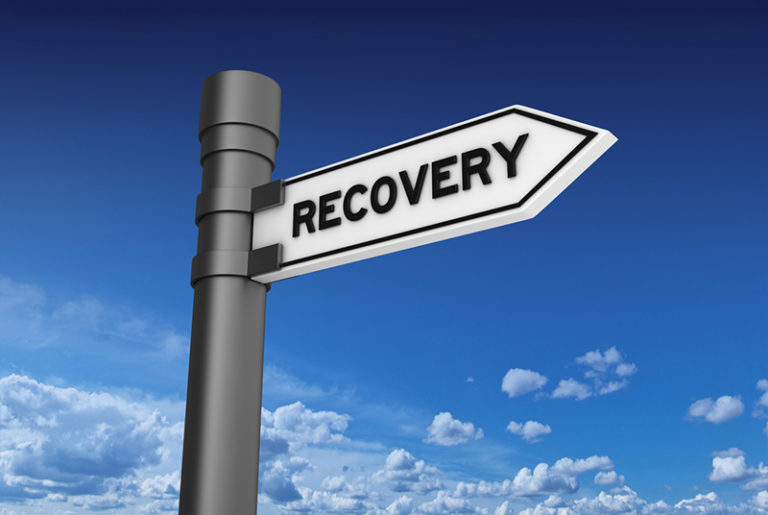Building back better: A net-zero emissions recovery


Green COVID-19 recovery packages will boost economic growth and stop climate change
- Leading economists find long-term, climate-friendly stimulus policies are often superior in overall economic impact – not just in slowing global warming.
- A survey of international experts reveals preferred policies with potential to stimulate economic growth while decreasing greenhouse gas emissions.
- In the UK, investment in renewable energy tops list of recommended policies.
An analysis of possible COVID-19 economic recovery packages shows the potential for strong alignment between the economy and the environment. The direction of these measures over the next six months will largely determine whether the worst impacts of global warming can be avoided, and research published today reveals that climate-friendly policies can deliver a better result for the economy – and the environment.
A team of internationally-recognised experts, including Nobel prize winner Joseph Stiglitz and well-known climate economist Nicholas Stern, came together to assess the economic and climate impact of taking a green route out of the crisis. They catalogued more than 700 stimulus policies into 25 broad groups, and conducted a global survey of 231 experts from 53 countries, including senior officials from finance ministries and central banks.
Drawing on this survey as well as learnings from the 2008 financial crisis, the economists found that green projects create more jobs, deliver higher short-term returns per dollar spend and lead to increased long-term cost savings, by comparison with traditional fiscal stimulus.
‘The COVID-19-initiated emissions reduction could be short-lived,’ says Cameron Hepburn, lead author of the report and Director of the Smith School of Enterprise and Environment, University of Oxford. ‘But this report shows we can choose to build back better, keeping many of the recent improvements we’ve seen in cleaner air, returning nature and reduced greenhouse gas emissions.’
Noting that ‘green’ policies could be widely defined, the study focused on the reduction of greenhouse gas emission as the key environmentally-beneficial criteria. The paper, to be published in the Oxford Review of Economic Policy, observes that desirable policies have a large return on investment, can be enacted quickly and have a strongly positive impact on climate. Examples include investment in renewable energy production, such as wind or solar. As previous research has shown, in the short term, clean energy infrastructure construction is particularly labour intensive, creating twice as many jobs per dollar as fossil fuel investments, as well as being less susceptible to off-shoring.
Other desirable policies included building efficiency retrofit spending, clean research and development spending, natural capital investment for ecosystem resilience and regeneration, and investment in education and training to address immediate unemployment from COVID-19 alongside unemployment from decarbonisation. For developing countries, rural support scheme spending, such as on sustainable agriculture, was also highly ranked. Meanwhile, non-conditional airline bailouts performed the most poorly on both economic impact and climate metrics.
Most G20 governments have implemented significant relief measures, as a result of the pandemic. But, as yet, none has introduced any significant fiscal recovery measures. The study authors hope that countries will seize this generational opportunity to take account of these criteria into national plans – for their economies and the environment.
Briefing for UK policymakers
The ‘COP26 Universities Network’ has drawn on this research and other analyses to create a briefing for policymakers outlining a path to net-zero emissions economic recovery from COVID-19. The network, a growing group of more than 30 UK-based universities, was formed to help deliver climate change outcomes at the UN Climate Summit in Glasgow and beyond.
They have put together a briefing which identifies ten fiscal recovery policies that promise to bring both short-term high economic impact and long-term structural change to ensure the UK meets its 2050 climate goals.
Among the policies emphasised are: renewable energy, reducing industrial emissions through carbon capture and storage, investment in broadband internet to increase coverage, electric vehicles and nature-based solutions. The briefing further called for the Cabinet Committee on Climate Change to be renamed the Climate Change Emergency Committee to reflect the urgent need for action.
‘Currently, the UK directs EUR10.5bn in subsidies to fossil fuels. Reallocating this capital to jobs-rich renewable energy projects would be a win-win for the economy and environment’, says Brian O’Callaghan, economist at the Institute for New Economic Thinking, University of Oxford.
The briefing highlights the leadership role of the UK in the leadup to COP26, as well as the opportunity to lead by example with a green recovery package. But the universities warned that the specific designs of any policy would ultimately determine its effectiveness.
Comments
Jennifer Allan, lecturer in International Relations, Cardiff University, says: ‘The world is looking to the UK – as COP 26 President – to catalyze climate ambition during this difficult time. Launching a Sustainable Recovery Alliance to foster global cooperation to build back better can cement the UK’s leadership and demonstrate climate action.’
Charles Donovan, Director of the Centre for Climate Finance and Investment, Imperial College Business School, says: ‘Clean energy is not just affordable and reliable, it also offers the highest return on investment. Investors have a growing appetite to put money to work in sustainable finance. Governments need to re-write the rules so that they can.’
Paul Ekins, Director and Professor of Resources and Environmental Policy, UCL Institute for Sustainable Resources, says: ‘The UK has led the world in setting ambitious carbon-reduction targets. But it is not on track to meet an 80% reduction in 2050, let alone net zero. It needs a Climate Change Emergency Committee, chaired by the Prime Minister, to give the required urgency to the task of decarbonisation, and a Net Zero Delivery Body to coordinate the contributions from different government departments, industry and the energy and financial sectors to drive the low-carbon post-COVID economic recovery that the UK so urgently needs.
Ajay Gambhir, Senior Research Fellow at the Grantham Institute for Climate Change and the Environment, Imperial College London, says: ‘Some of the changes forced upon us by this pandemic, including far more homeworking and far less travel, have inadvertently given us a tantalising glimpse of what a future with quieter, cleaner streets and less stressful commuting might look like. Supporting these changes, through accelerated investment in home broadband and electric vehicles, as well as low-carbon, energy efficient homes, makes excellent economic and environmental sense.’
Dave Reay, Professor and Chair in Carbon Management & Education and Executive Director of Edinburgh Centre for Carbon Innovation, University of Edinburgh, says: ‘Covid-19 is falling like a daily hammer blow on our economy, putting the livelihoods and employment prospects of many millions at risk. By aggressive investment in green skills and the creation of a swathe of green economy employment opportunities the UK can buffer COVID-19’s impacts and simultaneously deliver a safer climate future. In these darkest of times a truly sustainable recovery plan for the UK that is resilient, just and climate-smart can serve as a beacon for all nations of the world.’
Nick Robins, Professor in Sustainable Finance, Grantham Research Institute, LSE, says: ‘This is an important opportunity for the UK to upgrade its financial architecture to support a strong and sustainable recovery, not least through the establishment of a national investment bank and the issuance of sovereign bonds linked to climate and sustainability goals.’
Emily Shuckburgh, Director of Cambridge Zero, University of Cambridge, says: ‘Shaping the national and global recovery from the coronavirus pandemic in a way that supports the response to climate change and other environmental threats simply makes sense – not only does analysis suggest that green recovery packages deliver greater economic benefit, but investing appropriately in research, innovation, infrastructure and skills training, and matching that with robust institutional structures, will help create a fairer, more resilient, sustainable world with benefits for all. As ever, good can be extracted from even the darkest hour, but it requires clear thinking, imagination and bold leadership.’
Dimitri Zenghelis, Special Advisor to the Wealth Economy Project, Bennett Institute, University of Cambridge, says: ‘The markets are not unduly worried about UK public debt and neither should we be. The key is that new borrowing is invested wisely to generate productivity enhancing innovation, resilient output and a sustainable expansion of capacity. We cannot go back to the old model of business as usual, instead we should confront the economic threat posed by ‘fear’ through investment in building back better.’
NOTES FOR EDITORS
Please contact Lucy Erickson, University of Oxford, with any questions about this press release. (lucy.erickson@ouce.ox.ac.uk / 07774 840631), or news.office@admin.ox.ac.uk
Authors Cameron Hepburn (Cameron.hepburn@smithschool.ox.ac.uk) and Brian O’Callaghan (brian.ocallaghan@sjc.ox.ac.uk) are available for comment.
Embargoed copies of the report and briefing are available on request.
Citations
- Hepburn, C., O’Callaghan, B., Stern, N., Stiglitz, J., and Zenghelis, D. 2020. “Will COVID-19 fiscal recovery packages accelerate or retard progress on climate change?” Oxford Review of Economic Policy, 36(S1), forthcoming.
- Allan, J., Donovan, C., Ekins, P., Gambhir, A., Hepburn, C., Reay, D., Robins, N., Shuckburgh E., and Zenghelis, D. (2020). A net-zero emissions economic recovery from COVID-19. COP26 Universities Network Briefing.
The COP26 Universities Network is a growing group of more than 30 UK-based universities working together to help deliver an ambitious outcome at the UN Climate Summit in Glasgow and beyond. The network aims to improve access to evidence and academic expertise for COP26 for the UK government, NGOs and the international community. It demonstrates and activates the role of UK universities and world-leading science and research in contributing to a net-zero emissions and resilient future.
The Smith School of Enterprise and the Environment is an interdisciplinary hub of the University of Oxford. It focuses on teaching, research, engagement with businesses and enterprise, and long-term environmental sustainability. The Smith School was founded through a benefaction from the Smith Family Educational Foundation and officially opened in 2008. www.smithschool.ox.ac.uk
ENDS

